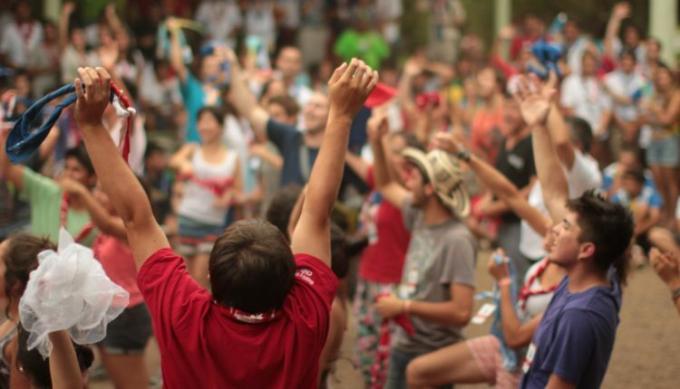At recreational activities they are a great opportunity to promote children's socialization. Furthermore, the activities can provide the participants' intellectual, psychological and physical development.
This happens because the activities provide a moment of integration and relationship between them, so that it also works on moral aspects and can use exercises that demand a good performance. manual.
These activities can be used in any social environment, whether at school, at a family gathering, or somewhere playing with friends.
Check out this list of recreational activities for you to choose the one that you think is coolest or most assertive for the chosen moment.
Index
- Recreational Activities for Early Childhood Education
- Identity Construction
- Dynamics of the name
- What do you look like to me...
- Surprise box
- ball on top, ball on bottom
- land, air and sea
- Treasure hunt
- Contrary
Recreational Activities for Early Childhood Education
Identity Construction
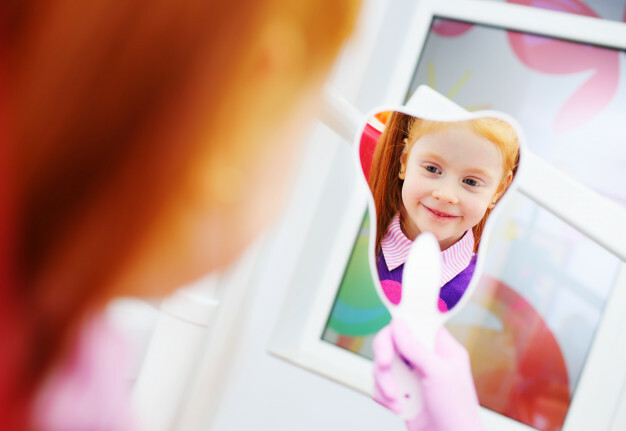
The game is very interesting, as its goal is for everyone to understand their particularities with small children. With this, the necessary materials are paper or cardboard that is the size of children, markers, mirror, tape and scissors.
To play the game, first ask the children to lie down on the paper and draw their silhouettes.
After that, they should be cut to size and the way it was designed. Then, when handing the mirror to them, ask them to draw their own features and features, including hair, eyes, mouth, etc.
When everyone is finished, tape the drawings on the wall and ask everyone to comment on their colleague's drawing and say what they think is different. Also, it is interesting to let each one say about what and why he drew himself that way and instigate them about his beauties.
Dynamics of the name

This game is very useful to play when children are still getting to know each other, such as in the first days of school, or when children are meeting in church, etc.
The purpose of this dynamic is for everyone to sit in a circle and, once in a while, the members will say their name. In addition, with the name, the person must perform an action that begins with the first letter of their name.
After that, everyone should repeat the name and movement together. So, this game is useful for everyone to know each other and remember the name of each colleague.
What do you look like to me...

This game should be done right at the beginning of the integration of children or adolescents, because they do not know each other in depth, but they have already noticed some characteristics of their peers.
The purpose of this dynamic is to exalt qualities, or point out flaws and improve socialization. The materials needed are paper, tape and pens.
To perform the dynamic, just stick a piece of paper on the back of each participant and ask for each one write on the back of the colleague what is proposed in the game, the qualities, feeling or glitches.
Surprise box
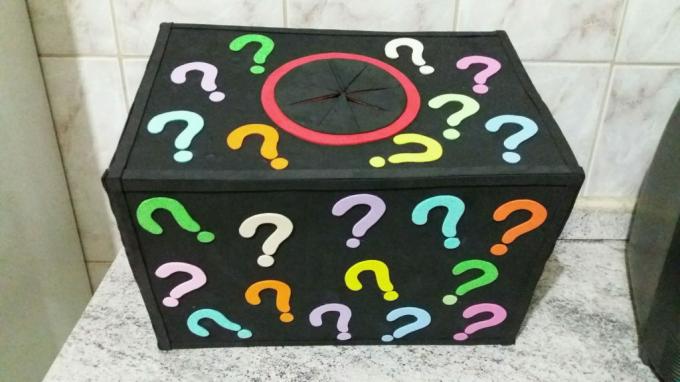
- Free Online Inclusive Education Course
- Free Online Toy Library and Learning Course
- Free Online Math Games Course in Early Childhood Education
- Free Online Pedagogical Cultural Workshops Course
The goal here is to develop the children's tact and their ability to imagine and feel what will be inside a box.
So, to play this game, just have a cardboard box with a hole on top and several objects to put inside, like a doll, caps, bottles, buttons, pen, candy, lollipop, etc.
ball on top, ball on bottom
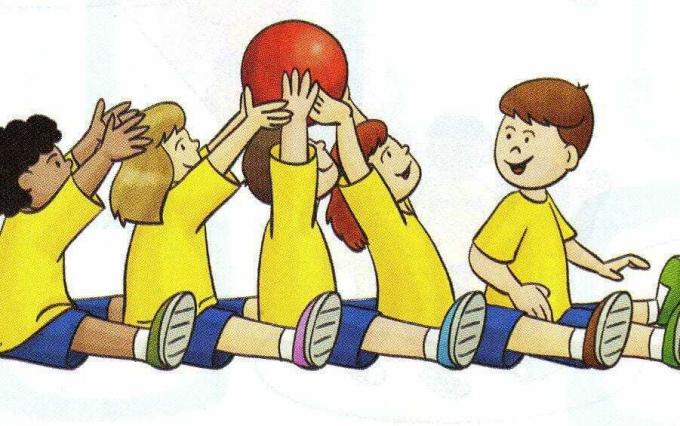
This game aims to assist in the development of motor coordination in children. To do it, just have a ball.
The children should be arranged in two rows and say that this will be a competition between the two to make it more fun and difficult, setting a prize for the winning team.
After that, the children should be guided that the game will develop as they pass the ball to their friend from behind and the last to catch the ball must run forward and start again until the participant who was in first returns to the beginning of the row.
In addition, the queue is expected to develop three times. In the first one, the children must pass the ball over their head when handing it to their partner from behind, in the second, by under the legs and in the third the first participant goes over, the second under and everyone must toggle.
land, air and sea

This game is excellent for stimulating children's cognitive development. To do the activity, a child must be chosen as the teacher. After that, children should be instructed about the game and to stand in line.
It must be said that the game is to think fast and say some animal that lives on land, water, or sea. The indication must be made by the master that each time a child in the queue he will say one of the options and the child at the time must say an animal that lives there.
If the child makes a mistake or delay in saying the name, he/she will have to pay a gift imitating the animal that made a mistake.
Treasure hunt
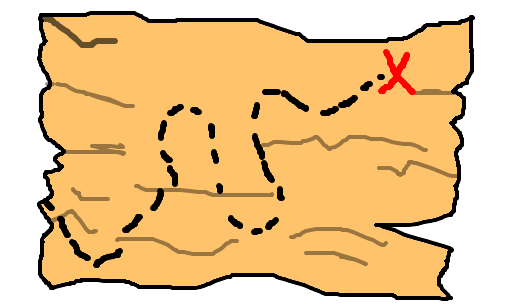
This game is very fun and stimulates children's cognitive development. First you must hide a treasure somewhere and think of clues to leave along the way.
To find these clues, questions should be asked about some general knowledge, or in the school's case about some subject seen in the day or week. That way, when they answer a right question a clue will be given to go somewhere. In the end, whoever finds the treasure first wins.
Contrary

In this game a child must be chosen by some system of choice to be the master of the game. After that, the children must form a line, standing side to side.
The child who is the master must give the commands, but the movements that the participants must make is actually the opposite of what the master said. That is, if she said “forward” everyone should go back.
Children who make wrong moves will leave the game and the one who comes last wins.
See too:
- 9 Brazilian folklore games
- 12 Popular Games in Brazil for Children – How to Play, Play, Street Play
- Biblical scavenger hunt – Check out 10 games to stir up meetings
The password has been sent to your email.

